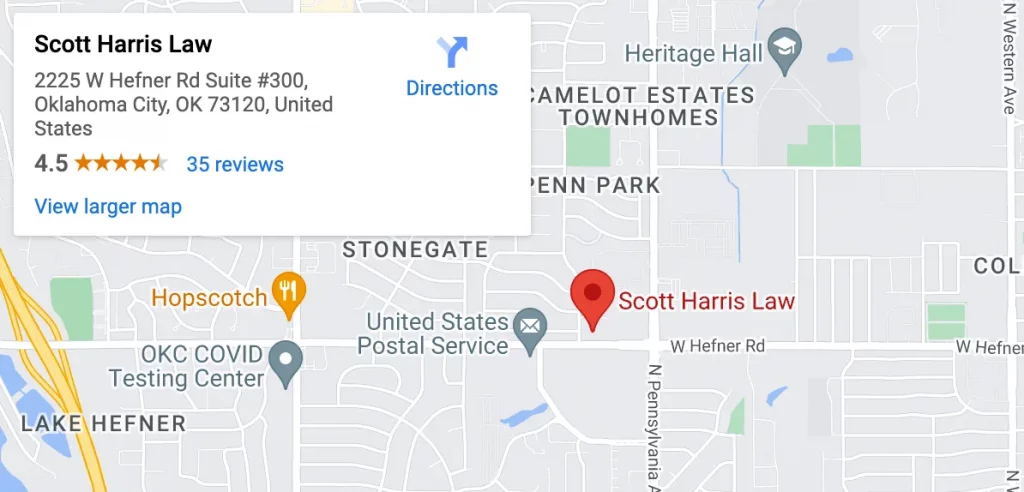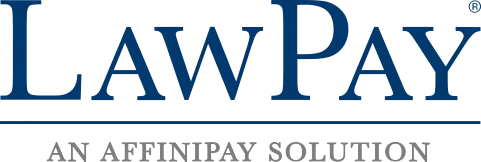A person or business that is unable to pay its debts may apply to the courts for debt relief through the legal process of bankruptcy. The goal of bankruptcy is to provide the debtor with a fresh start financially by getting rid of their debts. Knowing if one is eligible to file for bankruptcy—or, more simply put, who can file bankruptcy—gives one a chance for a fresh start.
Most of your debts will be dismissed if you file for Chapter 7 bankruptcy, allowing you to start over financially. But you shouldn’t rush into your chapter 7 filing decision. Contact our Oklahoma bankruptcy attorneys at Scott Harris Law, PLLC today to review your alternatives.
Why do I need a Chapter 7 Bankruptcy Attorney in Oklahoma?
It goes without saying that the process of filing bankruptcy is difficult. Due to the complexity of bankruptcy laws, a skilled attorney is beneficial to obtain the best results. Keep the following attributes in consideration when choosing a bankruptcy lawyer:
- Compared to a lawyer who is just getting started, you might feel more secure hiring a bankruptcy attorney who has years of experience handling cases similar to yours. You will save a lot of time and money by working with an experienced attorney.
- In addition to experience, you ought to pick a lawyer who pays attention to details. Look for a trustworthy, conscientious, and experienced bankruptcy attorney to handle your bankruptcy case.
- The legal guidelines for Chapter 7 bankruptcy are frequently updated. A bankruptcy attorney with current knowledge and a track record of success is someone you should consider employing. If he consistently performs his work, you may be sure that he is adjusting and staying informed of changes to the bankruptcy law.
As a reputable law office in Oklahoma City, Scott Harris Law is detail-oriented and able to conform to the most recent norms and regulations due to our extensive experience.
Our team is available to help if you’re looking for the best bankruptcy attorney to handle your Chapter 7 bankruptcy case. Schedule a free consultation now!
What is Chapter 7 Bankruptcy?
Chapter 7 bankruptcy, to put it simply, is a legal remedy available under the Bankruptcy Code that enables the liquidation of bankruptcy or the sale of a debtor’s taxable property with the proceeds going to the creditors. A “new start” bankruptcy is another name for it.
In Chapter 7 bankruptcy, the debtor is allowed to claim certain property as bankruptcy exemptions. The debtor receives a discharge in return, which means that they are no longer responsible for paying certain debts. On the other hand, partnerships and corporations are not allowed.
What are the Advantages of Filing for Chapter 7 Bankruptcy?
There are several advantages that you’ll get once you file for chapter 7 bankruptcy. Here are the following:
- Since you are no longer held liable for the discharged amount, you’ll get a fresh start once you eliminate certain unsecured debt. Bear in mind, though, that not all debts are dischargeable, including student loans. Other forms of debt are likewise seen as fraudulent. Following the Chapter 7 bankruptcy, certain property liens, including tax liens, mortgages, and mechanic’s liens, will still be in place.
- Future income is yours to retain. The property you obtain after submitting a petition for Chapter 7 bankruptcy is often prohibited from being included in the bankruptcy estate. They are purchased and added to the bankruptcy estate within the first six months of the filing for a Chapter 7 bankruptcy petition. The assets include inheritance, death benefits, divorce judgment or settlement items, and life insurance payouts.
- You can owe as much as you want. Chapter 7 bankruptcy does not have a debt ceiling like Chapter 13 bankruptcy does, in contrast. No matter how much debt you have, if you qualify for Chapter 7 bankruptcy.
- There is no debt repayment plan. You no longer have to repay the debt through a repayment plan that has been approved by a judge, which is one of the best features of Chapter 7. After receiving a Chapter 7 discharge, you are no longer required to pay back the amount.
- Debt can usually be eliminated in as little as three months. 60 to 90 days after filing for Chapter 7 bankruptcy, the court may issue a discharge order. As soon as the bankruptcy trustee distributes your property to your unpaid creditors, the bankruptcy court will dismiss your case.
Who Can File Chapter 7 Bankruptcy?
Although Chapter 7 isn’t a solution for everyone, it can be a quick, easy, and practical approach to cope with excessive debt. Qualifying for a chapter 7 bankruptcy in Oklahoma City involves a series of tests and procedures. If you need help deciding, we can assist you. When determining whether to file for bankruptcy, keep the following things in mind:
- The “means test,” which determines if your monthly disposable income is insufficiently low to qualify for Chapter 7 bankruptcy, must be passed successfully in order for you to be eligible for this type of bankruptcy.
- In general, if your income is higher than the typical family income in your state, you might not be able to file for Chapter 7 bankruptcy. The means test’s main goal is to stop people from declaring bankruptcy and paying off their debts even though they are financially capable.
- Once you do not pass the Chapter 7 means test, take Chapter 13 bankruptcy into consideration. Your monthly payments must follow a strict budget that is supervised by the court over a three- to five-year period. While Chapter 7 bankruptcy is preferred by the majority of those filing, Chapter 13 bankruptcy is still the best option in some situations, such as making up missed mortgage payments to avoid home foreclosure or paying off debts that won’t be discharged in bankruptcy over time, like the majority of tax and support arrears.
- Imagine you make too much money to be automatically eligible for Chapter 7 bankruptcy. Suppose your income is insufficient to pay your authorized monthly expenses (including childcare, housing, taxes and insurance) and at least some of your unsecured debts. In that case, you might be able to file under this chapter.
- Additionally, if you have filed for bankruptcy under Chapter 7 within the past two years, you are ineligible to do so again. You can’t file for Chapter 7 bankruptcy again for at least eight years after the day you last did so. You must wait at least six years after declaring Chapter 13 bankruptcy before declaring Chapter 7 bankruptcy.
Talk to a lawyer first, though, before deciding on Chapter 7 bankruptcy. You could discover that you can pass the means test after all with the help of knowledgeable legal counsel.
How do I File for Chapter 7 Bankruptcy?
An extensive list of your assets, liabilities, income, and expenses, as well as a voluntary bankruptcy petition, must be prepared first. As required by law, you must provide evidence of your income, copies of your most recent tax returns, and documentation that you attended credit counseling before filing.
- An automatic stay will take effect once your petition has been submitted online with the aid of your attorney. You are protected by this interim order from additional collection efforts and the possibility of repossession or foreclosure on your house or other property.
- A meeting of creditors will be called by the case trustee between 20 and 40 days after you submit your petition, and you will be required to attend it with your bankruptcy attorney. Also, to prove that you comprehend the possible repercussions of filing for Chapter 7 bankruptcy, you will have to provide answers to questions. Additional details regarding your financial situation can also be requested.
- You should get your debt discharged within 3 months of the creditors’ meeting if your petition and schedules are not challenged. A Chapter 7 discharge frees you of any personal responsibility for the majority of your debts and stops the debts’ creditors from initiating further collection efforts against you.
What are the Alternatives to Chapter 7 Bankruptcy?
There are a number of alternatives to Chapter 7 relief that debtors should be aware of. Debtors who are operating businesses, such as companies, partnerships, and sole proprietorships, may prefer to do so and avoid liquidation.
- Such debtors ought to think about submitting a chapter 11 petition under the Bankruptcy Code. In a chapter 11 bankruptcy, the individual debtor can either ask for a debt adjustment—a reduction in the amount owed or an extension of the repayment period—or a more thorough restructuring.
- The Bankruptcy Code’s Chapter 13 may also provide bankruptcy relief for sole proprietorships. Additionally, Chapter 13 of the Bankruptcy Code permits individual debtors with regular income to request a debt adjustment. Chapter 13 has the unique benefit of giving individual debtors a chance to “catch up” on past-due payments through a payment plan, preventing their houses from going into foreclosure.
- A chapter 7 case filed by a person whose debts are predominantly consumer obligations as opposed to business debts may also be dismissed by the court if the judge determines that giving relief would misuse the chapter 7 bankruptcy code. 11 U.S.C. § 707(b).
- Out-of-court settlements with creditors or debt counseling agencies are also options for filing for bankruptcy.
To review your options of what bankruptcy filing suits you best. Get in touch with or Oklahoma City bankruptcy attorney now!
Call our Best Oklahoma City Bankruptcy Attorney Now!
Sometimes, having financial problems might be frustrating. Creating a plan for debt repayment and meeting financial obligations while under bankruptcy protection is essential. Consider the crucial characteristics of a bankruptcy attorney if you decide to file Chapter 7 bankruptcy and seek debt relief from a law firm. It should be capable of managing multiple bankruptcy cases while maintaining a high level of professionalism, attention to detail, and competence.
Elder law, probate and estate administration, and estate planning are all practice areas for the prominent Oklahoma City, OK, legal company Scott Harris Law. We’ve been successfully resolving Chapter 7 and Chapter 13 bankruptcy cases for over ten years, and we’re dedicated to helping you achieve your debt-free objectives.
Contact our bankruptcy attorneys at Scott Harris Law, PLLC in Oklahoma, for legal advice and get a free consultation so we can quickly resolve your debt issues and determine your goals.




